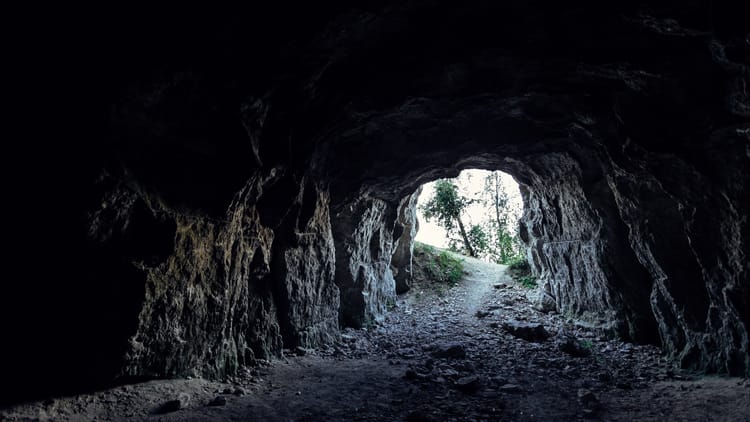Far From Home (Psalm 120)

Big Idea: You’re far from home, so don’t settle in here, and start your journey home.
Have you ever been so disgusted by the state of things that you feel sick?
I have. We’ve just been through a very difficult 15 months of a pandemic. You would think that the physical illness of COVID would be the hardest part, wouldn’t you? The hardest thing for me has been how broken the world is: political division, conspiracy theories, racial injustice, and more. I was devastated to read the news about the residential school discovery. I can't recall a time when it has been this easy to lose faith in humanity and the state of the world. The more I read the news, the more I see what’s happening on social media, the more reason I find to be discouraged about humanity.
Some of you are getting worried about me. “What made Darryl so depressed?” I want to argue that it actually is good, in one sense, that we feel this way. We're kicking off a new series today called Homesick. Here’s the big idea of this series: we need songs that help bring us home, especially because we are clearly not home in this world. These psalms are going to help us make our way home as we go through the ups and downs of living in this broken world.
Let me tell you a bit about these psalms.
Psalms 120 to 134 are called the Songs of Ascent. People have a few theories about these psalms. What’s clear is that they are pilgrim’s songs, probably used by those who traveled to Jerusalem for the three festivals that took place there every year: Passover, Pentecost, and the Feast of Tabernacles. Joseph and Mary would have used these songs on their way to Jerusalem. Jesus would have sung them as he traveled to Jerusalem with his disciples.
So when we read these Songs, we should think about going on a journey. The journey is to take us closer to God. But it’s a journey full of obstacles and trials. It’s not going to be an easy journey.
So today, we start this journey. And as we read Psalm 120, we realize we’re far from home. Let’s walk through this psalm and see what we discover. Here’s the gist of what we discover: We start our journey far from home.
Read this psalm. It is a strange psalm to start the Songs of Ascent. It doesn't mention Jerusalem or the festivals. On the contrary, it begins where we are. Derek Kidner writes, “It appropriately begins the series in a distant land, so that we join the pilgrims as they set out on a journey which, in broad outline, will bring us to Jerusalem.”
And so that’s where we start: in a distant land. And what do you find when you’re in a distant land, far from home? You find homesickness and trouble, which is just what we’re experiencing here.
According to the psalmist, two things are wrong.
First, the world’s full of lies (120:1-4).
Verses 1 and 2 say:
In my distress I called to the LORD,
and he answered me.
Deliver me, O LORD,
from lying lips,
from a deceitful tongue.
Verse 1 says the psalmist is in distress. He’s crying out to God for help. The reason is found in verse 2: because people are lying and deceiving. That doesn’t sound like much, but a lie can do a lot of damage. We’re going to see later that their agenda is to destroy him.
In verses 3 and 4, the psalmist turns to the liars and deceivers and talks to them directly. He tells them that their actions will result in God’s judgment. They “will be destroyed with far more potent shafts than lies: God’s arrows of truth and coals of judgment” (Derek Kidner).
The psalm begins by reminding us what the world is like. We live in a world filled with lies.
Some of you know what it’s like to be the victim of lies. Some of you have been slandered. Lies have been told about you at work or in court. It has cost you your reputation. It may have kept you awake at night. It may have cost you your job or worse. Lies can do great damage and cause great harm.
But even beyond that, we live in a world full of lies. Lies have always been Satan’s greatest weapon against us. Eugene Peterson recounts some of the lies:
We have been told the lie ever since we can remember: human beings are basically nice and good. Everyone is born equal and innocent and self-sufficient. The world is a pleasant, harmless place. We are born free. If we are in chains now, it is someone’s fault, and we can correct it with just a little more intelligence or effort or time.
“Christian consciousness begins in the painful realization that what we had assumed was the truth is in fact a lie,” he says.
Let me be clear. The world tells us lies every day about who we are, what we should believe, and how we should act. We live in a world full of lies, and it should bother us.
That’s why it’s good that the psalmist prays in verse 2 that God delivers him from lies. Peterson expands this prayer:
Rescue me from the lies of advertisers who claim to know what I need and what I desire, from the lies of entertainers who promise a cheap way to joy, from the lies of politicians who pretend to instruct me in power and morality, from the lies of psychologists who offer to shape my behavior and my morals so that I will live long, happily and successfully, from the lies of religionists who “heal the wounds of this people lightly,” from the lips of moralists who pretend to promote me to the office of captain of my fate, from the lies of pastors who “leave the commandment of God, and hold fast the tradition of men” (Mark. 7:8). Rescue me from the person who tells me of life and omits Christ, who is wise in the ways of the world and ignores the movement of the Spirit.
I would add: rescue me from the lies of those who tell me that the way to find freedom is to look within and express myself, that I can pick and choose between what culture says about sex and what God says, that we are more enlightened than God. Deliver me from lies.
But that’s not all.
Second, the world is full of hostility (120:5-7).
He says in 5 to 7:
Woe to me, that I sojourn in Meshech,
that I dwell among the tents of Kedar!
Too long have I had my dwelling
among those who hate peace.
I am for peace,
but when I speak, they are for war!
Not only does he live among liars, but he lives among those who love war. He compares where he’s living to being in a distant land. He mentions two places: Meshech and Kedar. These places are a little difficult to locate, but they’re far from home, and they’re among hostile people. The psalmist is feeling dislocation and isolation. He’s saying that he feels lost, that the world isn’t a friendly place, and that they in fact want to destroy him. He’s had enough of living there. He loves peace, but he lives among people who love to fight and declare war.
That’s basically the psalm: that we start our journey to God far from home. We live in a world of lies and hostility. If you don’t feel at home here, then you are seeing the world correctly. We’re not supposed to be at home here. We’re supposed to be bothered by all that’s going on around us. We were made for something better. We were made to long for home.
One old preacher said, “The starting place for our spiritual pilgrimage is seeing the world for what it is in order to turn from it” (James Montgomery Boice).
Or, as C.S. Lewis once wrote:
If we had foolish un-Christian hopes about human culture, they are now shattered. If we thought we were building up a heaven on earth, if we looked for something that would turn the present world from a place of pilgrimage into a permanent city satisfying the soul of man, we are disillusioned, and not a moment too soon.
You may be wondering where this psalm is taking us.
I said earlier that we need songs that help bring us home, especially because we are clearly not home in this world. These psalms are going to help us make our way home as we go through the ups and downs of living in this broken world. If we’re going to be good pilgrims along the way, we need to be very honest about ourselves about where we’re starting the journey.
In his volume The Message of the Psalms, Walter Brueggemann sought to provide a new paradigm for considering the psalms. He suggested that there were three types of psalms in the Old Testament: psalms of orientation, psalms of disorientation, and psalms of new orientation. This is a psalm of disorientation. It’s meant to wake us up to the reality we may have missed because we’ve grown comfortable: we are not at home. This world is broken. We were meant to long for more.
What do we do with the brokenness, sin, and evil in this world? A lot of things, like lament and cry out to God and to do our part to take the side of the oppressed. But one of the things we’re supposed to do is to long for home, to never feel quite settled here. We should not feel entirely comfortable in a world that tries to live without God, among all that’s wrong with this world. We’re meant to long for home.
The surprising thing is what God did to answer this longing. Jesus experienced dislocation. He left his home in heaven to come to earth and to take his place alongside us, far from his home, so that he could fix what’s wrong with this world. He came to conquer sin and evil. And he will one day return fully to establish his kingdom, and we will one day reach the end of our pilgrimage through this broken world and be fully and safely home.
I love the Andrew Peterson song:
Do you feel the world is broken? (We do)
Do you feel the shadows deepen? (We do)
But do you know that all the dark won’t stop the light from getting through? (We do)
Do you wish that you could see it all made new? (We do)
Is all creation groaning? (It is)
Is a new creation coming? (It is)
Is the glory of the Lord to be the light within our midst? (It is)
Is it good that we remind ourselves of this? (It is)
You’re far from home, so don’t settle in here, and start your journey home.
This is the place to start our pilgrimage: realize that you’re far from home, and refuse to settle in here or conform to this world’s lies. As James Montgomery Boice says, “Put on your hiking shoes. Strap your pack to your back. Say goodbye to your sins, and start marching to Zion. The King of Glory is waiting for you.”
Lord, we live in a broken world. We long for home. Help us not to feel at home here. Your kingdom come. Your will be done on earth as it is in heaven. Even so, come, Lord Jesus, and make this world right again. Amen.





